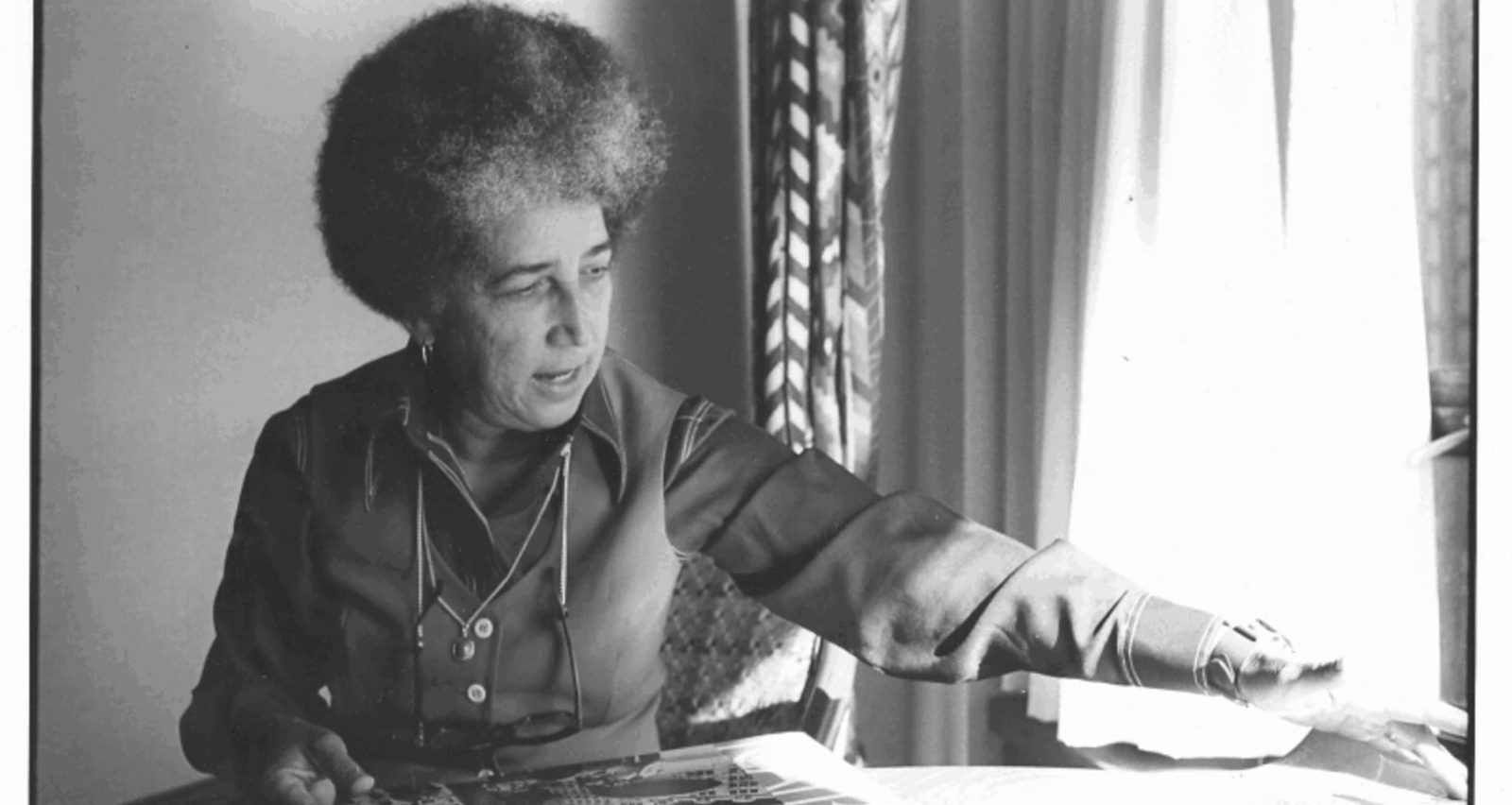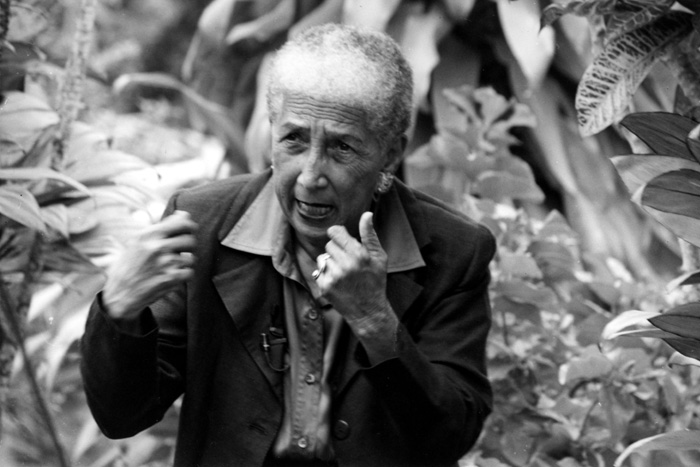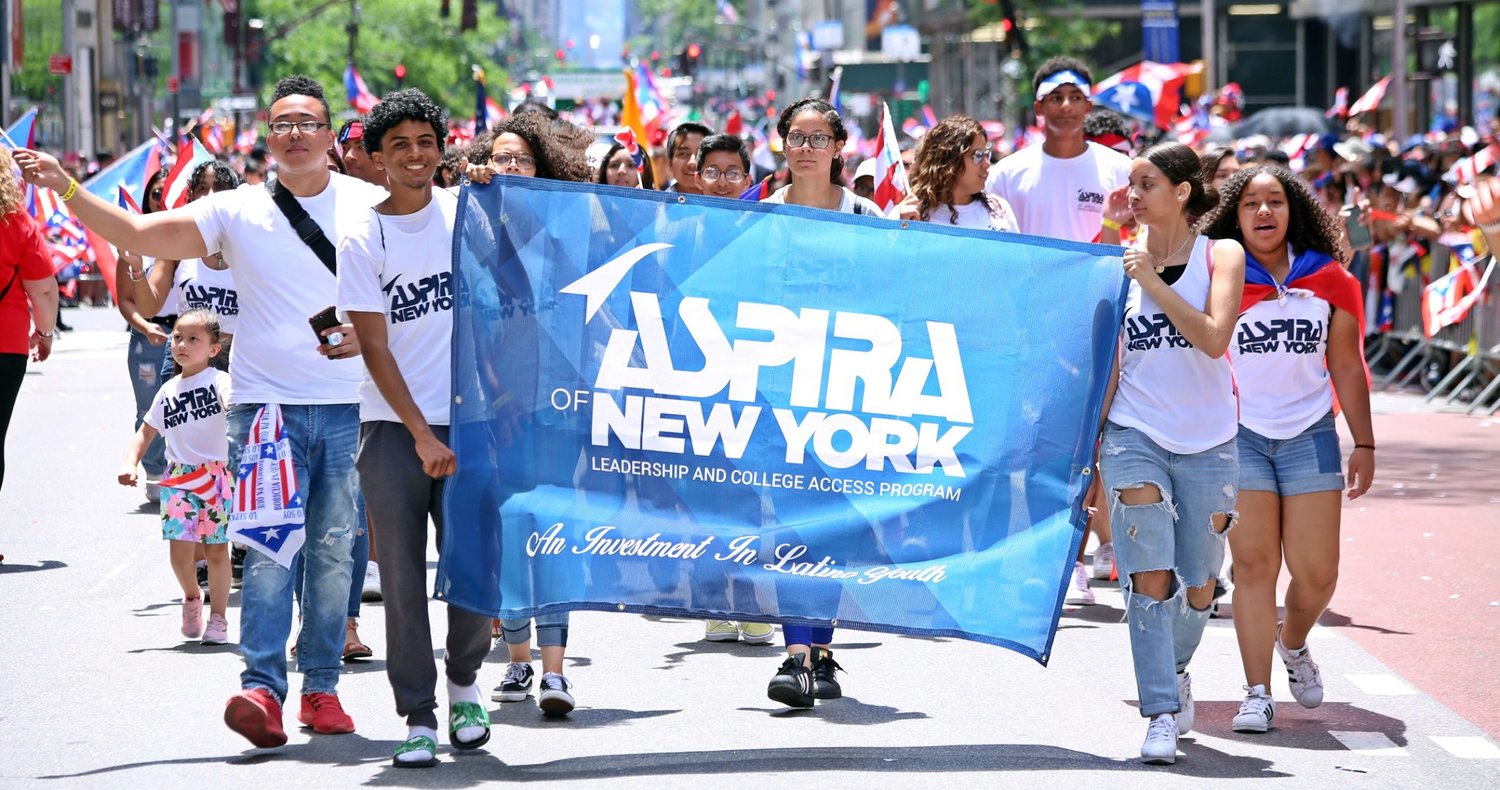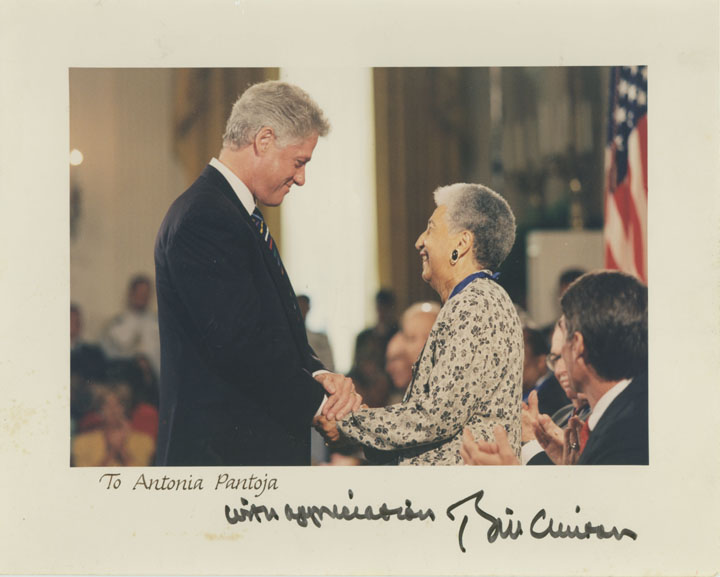Our Hidden Voices series, which began as a collaboration with the Museum of the city of New York, highlights important people from American history who have been "hidden" from traditional historical records. Our first profile in the series features Dr. Antonia Pantoja, one of the country's most influential civil rights and education leaders of the 20th Century.
Hidden Voices began as a collaboration between the NYC Department of Education and the Museum of the City of New York that was initiated to help City students learn about the countless individuals who are often “hidden” from traditional historical records. Each of the people highlighted in this series has made a positive impact on their communities while serving as outstanding examples of leadership, advocacy, and community service.
 Dr. Antonia Pantoja (1922–2002)
Dr. Antonia Pantoja (1922–2002)Dr. Antonia Pantoja was one of the most important leaders of the Puerto Rican Diaspora, or Puerto Ricans who immigrated to the United States throughout the 20th Century. Born outside of Old San Juan in Puerta de Tierra in 1922, Dr. Pantoja worked as a schoolteacher in rural Puerto Rico before finding her calling as a community organizer and educational activist in the United States. Over the course of her life, she founded several community-focused organizations, including the Puerto Rican Forum, which served as an incubator for local programs that promoted economic self-sufficiency, and ASPIRA, which trains young, high school-aged Puerto Ricans to take on leadership roles in their schools and local communities. Dr. Pantoja also helped to bring about the implementation of bilingual education in New York City public schools, and co-founded the Universidad Boricua, the precursor to today’s Boricua College.
“You cannot live a life that is lukewarm. You’ve got to live a life of commitment and passion. A passionate life. And by passion, I mean passion in that sense—the passion of doing, producing, thinking, and dealing with making the world a better place.”
-Dr. Antonia Pantoja
After graduating from the University of Puerto Rico in 1942, Dr. Pantoja became a teacher in a rural community. But frustration with widespread underinvestment in education and traditions that discouraged academic achievement, particularly for women, led her to depart Puerto Rico in 1944 for New York City, where she found employment as a welder in a factory. She was part of the first wave of the eventual 600,000 Puerto Ricans who made “Nueva York” their new home during the postwar period (1946–1965), and transformed pockets of the City into new communities, including East Harlem, the South Bronx, Williamsburg, the Lower East Side, and Bushwick. These groundbreaking “Nuyoricans” built vibrant communities while struggling against discrimination, poverty, and a declining job market, especially those who emigrated from Puerto Rico with little or no tradition of literacy or formal education.
Dr. Pantoja knew that combating these challenges required building knowledge and political capital within the community. As she settled into the City and her workplace, she committed to activism and educating fellow employees about their rights. She also continued to pursue her education and graduated from Hunter College with a bachelor’s degree in sociology in 1952, then, two years later, received her master’s degree from Columbia University’s School of Social Work. In 1973, Dr. Pantoja earned her Ph.D. from the Union Graduate School in Ohio.
 Dr. Pantoja was a fierce believer in the power of education—throughout her life, she pushed young people to excel in school and work towards making society a better place for all. (Photo from "Antonia Pantoja: ¡Presente!" by Lillian Jiménez)
Dr. Pantoja was a fierce believer in the power of education—throughout her life, she pushed young people to excel in school and work towards making society a better place for all. (Photo from "Antonia Pantoja: ¡Presente!" by Lillian Jiménez)At the time she graduated from Columbia, half of Puerto Rican families in the City lived below the poverty line, 70% of Puerto Ricans who had jobs worked in the lowest-paying positions, and more than half of Puerto Ricans over the age of 25 had less than an eighth grade education. In Dr. Pantoja’s view, the way out of poverty for Puerto Ricans was through education and economic self-sufficiency. In 1957, she founded the Puerto Rican Forum in support of community-based organizations and programs that helped people understand and act upon their economic and educational options. Then in 1961, as part of an effort to help improve the performance of Puerto Rican children in NYC schools, Dr. Pantoja established ASPIRA, a nonprofit organization that works with City schools to encourage high school-aged Latinos to pursue higher education while helping to improve their leadership and organizational skills, cultural awareness, and self-esteem. Today, ASPIRA operates in nine states and Puerto Rico, and maintains relationships with hundreds of community partners and schools across the country.
In 1972, ASPIRA of New York made history when the organization filed a federal civil rights lawsuit against the NYC Board of Education (the City’s precursor to the current NYC Department of Education) demanding that New York City schools provide classroom instruction in transitional Spanish for struggling Latino students. With the support of Dr. Pantoja, ASPIRA of NY argued that thousands of Latino students were being denied their educational rights by being forced to take classes in a language (English) that they did not fully understand. The federal court agreed, and in 1974, ordered the City to establish bilingual and English as a Second Language (ESL) classes for students with limited English proficiency. Today, the ASPIRA case is considered a landmark ruling in the United States, as it helped establish bilingual education as a norm for all non-English speaking students across the country.
 Operating through clubs in schools, ASPIRA uses rituals and symbols based on Taino symbols and traditions to help "Aspirantes" understand their heritage and personal potential. Aspirantes are encouraged to pursue educational excellence and dedicate their success to their communities. (Photo Credit: ASPIRA of New York)
Operating through clubs in schools, ASPIRA uses rituals and symbols based on Taino symbols and traditions to help "Aspirantes" understand their heritage and personal potential. Aspirantes are encouraged to pursue educational excellence and dedicate their success to their communities. (Photo Credit: ASPIRA of New York)After serving as ASPIRA’s executive director from 1961–1966, Dr. Pantoja went on to co-found the Universidad Boricua (Boricua College) in 1970 and in 1978, joined the faculty at San Diego State University, where she co-founded the Graduate School for Community Development. In 1984, she moved back to Puerto Rico, where she created two community organizations, Producir and Provivienda, to provide rural Puerto Ricans with small business assistance and housing, respectively.
Over the course of her life, Dr. Pantoja received several awards and honorary degrees in recognition for her life’s work, culminating in 1996 when she became the first Puerto Rican woman to be honored with the Presidential Medal of Freedom, the U.S.’s highest civilian honor. Today, she continues to be honored for her countless contributions to education and civil rights—a number of schools across the U.S. are named after her, including the Bronx’s very own Antonia Pantoja Preparatory Academy, and in recent years, she’s been recognized as an important historical figure within the LGBTQ community.
Dr. Antonia Pantoja passed away from cancer at the age of 80 in May 2002, but her work on behalf of Latinos endures today. From ASPIRA, which continues to forge young community-minded leaders in high schools across the country, to the expansion and support of language access programs in NYC public schools today, Dr. Pantoja’s legacy in education continues to touch the lives of millions of students throughout the United States.
 President Bill Clinton presented Dr. Antonia Pantoja with the Presidential Medal of Freedom in 1996. (Photo Credit: Estate of Dr. Antonia Pantoja)
President Bill Clinton presented Dr. Antonia Pantoja with the Presidential Medal of Freedom in 1996. (Photo Credit: Estate of Dr. Antonia Pantoja)
Sources
- Antonia Pantoja: ¡Presente! Directed by Lillian Jiménez, Latino Public Broadcasting, 2009
- “Antonia Pantoja: ¡Presente!” PBS LearningMedia, Public Broadcasting Service, 2009, https://ny.pbslearningmedia.org/resource/87537891-1a6d-41c6-9662-b09db4c17201/antonia-pantoja-presente/
- “Antonia Pantoja: Fighting for Puerto Rican New York.” Hidden Voices: Untold Stories of New York City History, NYC Department of Education, 2019 pgs. 113–119.
- “Antonia Pantoja.” Wikipedia, http://en.wikipedia.org/wiki/Antonia_Pantoja
- Lavietes, Stuart. “Antonia Pantoja, Champion of Bilingualism, Dies at 80,” New York Times, 28 May, 2002, https://www.nytimes.com/2002/05/28/nyregion/antonia-pantoja-champion-of-bilingualism-dies-at-80.html
- “Our Founder Dra. Antonia Pantoja.” ASPIRA, https://aspira.org/about-us/our-founder-dra-antonia-pantoja/
- Pantoja, Antonia. Memoirs of a Visionary, Arte Publico Press, 2002